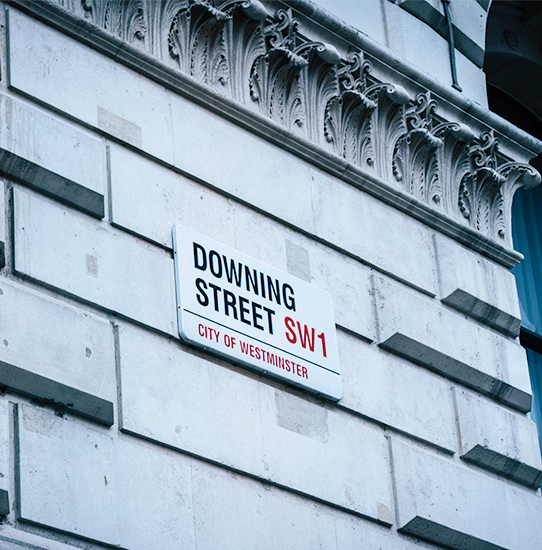The Race is on for the Next Prime Minister
Rishi Sunak and Liz Truss continue to battle it out for 10 Downing Street. The two have put forward their plans to tackle the inflation crisis. Fortunately, some policies may benefit the property market, whereas others may be disadvantageous.
The two in the running for Prime Minister have entirely different strategies. Liz Truss is championing tax cuts, whereas Rishi Sunak is looking to support vulnerable households. On the 5th of September, one of the two will be named the next UK Prime Minister. However, many believe a conclusion should be made earlier, as the cost-of-inflation spikes.
We cannot be sure who will succeed Boris Johnson at 10 Downing Street. But we know which of the two will benefit landlords and aspiring homeowners. The housing supply crisis continues to exacerbate. Rishi Sunak has highlighted the need to support people transitioning from social housing into homeownership. However, Sunak is revisiting planning permissions. He insists on shifting the focus to developing brownfield sites. In addition, he wants to stop the practice of land banking.

Sunak’s Land Banking Ban
Could Affect Developers
Land banking involves a property developer purchasing land to develop further down the line instead of developing immediately. In the meantime, the land sits in the land bank of the developer. However, land could be unused for long periods, or the use of the land may temporarily change into a car park, for example. Therefore, Rishi has proposed a ban on land banking.
Those who land bank do this to generate profit on the land in the long-term when prices increase. Purchasing land without planning permission is much cheaper than that with planning permission. Therefore, once planning is approved and the property is complete, the value of the land will increase. Accordingly, the developer will gain instant equity on the land which was purchased at a lower price.
On the other hand, land banking ensures developers have a considerable number of projects in the pipeline to continue building once a project reaches completion. However, if the practice of land banking is stopped thanks to Sunak, the process of developing a new build will be much slower. As a result of a land bank ban, the developer would need to source the land, gain planning permission, and then find available builders and resources. Therefore, the process of developing a property could be much slower.

Truss to Ease Buying &
Renting Property for People
Unlike Liz Truss, Rishi Sunak has not prioritised the topic of taxation. Sunak believes tax cuts will intensify inflation. Instead, he is keen to shift his focus on the energy efficiency of houses. Liz Truss aims to cut taxes. However, economist Patrick Minford has said that interest rates will rise to 7% to accommodate these tax cuts. Therefore, hugely impacting those with variable mortgage rates.
Liz Truss has stated she wants to make buying and renting property cheaper and easier. Therefore, landlords will not have to face as many regulations as they do currently.
- Supporting Tenants: To support tenants and to help prepare them when buying property, she wants to introduce PRS tenants to record their rent payments with credit reference agencies to boost credit scores.
- Supporting Landlords: The proposition of Liz Truss will benefit landlords because they can see if a tenant has a decent and timely payment history.
- Supporting Developers: Truss has also proposed to develop low planning zones. Zones with clear planning rules. As a result, developers can start building much more efficiently, generating more jobs, and softening the chronic housing supply shortage.

Sunak will Introduce
Stricter Planning Regulations
Rishi Sunak is looking to apply stricter regulations to planning. In addition to prohibiting land banking, the new policy will focus on ‘brownfield, brownfield, and brownfield’, as quoted by Sunak. Sunak hopes to protect the green landscape and insists on developing brownfield sites. According to the latest analysis, over a million houses can be built on brownfield sites, especially in the North and the Midlands.
Green belts restrict cities from expanding. These green belts minimise urban sprawl. When urban growth shifts further afield, commutes to city centres become lengthy. As a result, these long commutes contribute to pollution.

Liz Proposes to Slash Taxes
Reverting to the issues of taxation, Rishi Sunak has proposed to increase the corporate tax rate from 19% to 25% from April 2023. This will impact many landlords who have limited companies. In addition, Sunak inflated the National Insurance Contributions to 1.25%. His opposition, Liz Truss, plans to cut taxes worth £30bn. Sunak believes this slash will only intensify inflation. The driving factor for inflation is the Russian invasion of Ukraine. This year, rates are forecast to hit a 42-year high of 13.3%.

What’s our Verdict?
The key takeaway from these fierce Parliament debates is that the appointment of Liz Truss as Prime Minister will definitely benefit the property market a lot more than if Rishi Sunak steps into the role. This is true for all parties, including tenants, landlords and developers! If Truss steps into the position, succeeding Boris Johnson, then:
- Tenants will be able to build up their credit scores with the recorded rent system.
- Landlords will easily be able to carry out tenant referencing checks and Truss is keen to make it easier for people to secure a property.
- Developers will be able to build much more quickly with relaxed planning permissions.
- The income you generate through property development or rental income, will not be taxed as much as if Truss’ rival introduces the elevated corporation tax rates at 25%.
Explore our Investment Guides
Take a look
As Seen In
Join CityClub Today to Receive:
- Priority access to exclusive off market investments
- Below market value pricing
- Out of hours investor support chat
- Allocated solicitor for hands free conveyancing


















